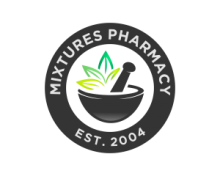 If any of you have met my little sister you know that she is a skin care enthusiast. I admit that when I get questions from patients on skin care sometimes I call her. So when I was trying to figure out what to write the blog on this week she suggested discussing sunscreen during the winter. Genius!
If any of you have met my little sister you know that she is a skin care enthusiast. I admit that when I get questions from patients on skin care sometimes I call her. So when I was trying to figure out what to write the blog on this week she suggested discussing sunscreen during the winter. Genius!
I know it’s cold and cloudy today, but that doesn’t mean that you should be slumping on your skin care! Time for a story from my friend Evan:
He was standing in line at some store or another and there were two girls standing in front of him. Now, don’t pretend you don’t do it, but he was listening to their conversation (what else are you supposed to do in line?). One of the girls was talking to the other and said “Well it’s pointless to go tanning today! The wind is blowing and you can’t tan when the wind is blowing.”
The sun doesn’t cause skin damage because of the heat! We do not live in an oven so by cooling things down you are not going to stop things from cooking. Instead, we live in a microwave. Skin damage is caused by UV radiation. Cloudy days, like what we experience in the winter, can actually make you more prone to sun damage because the blanket of clouds holds the UV radiation in towards the earth instead of letting the radiation escape back into space. And when the snow comes to certain areas of the country? Oh just forget it! If you aren’t wearing sunscreen you are ASKING for a nasty sunburn. And don’t forget, sunburns make you feel cold. Great, so now you’re cold, can’t get warm, AND it’s freezing outside. Put your sunscreen on!
Okay now that we’ve established that wearing sunscreen no matter what time of year it is is a great idea lets talk sunscreens. If you haven’t been able to tell I am opinionated, and the subject of sunscreen is no exception. In fact it may be a little worse so brace yourself:
There are two types of sunscreens out there – Chemical and Physical blockers.
Chemical blockers include dixoybenzone, oxybenzone, cinoxate, ethylhexyl p-methoxycinnamate, octocrylene, octyl methoxycinnamate, ethylhexyl salicylate, homosalate, octyl salicylate, and more.
Physical blockers include titanium dioxide and zinc oxide.
I stick primarily to physical blockers and this is why: chemical blockers can irritate skin, acne, dry skin, eyes… their like you’re kid brother. They’re just irritating. Physical blockers aren’t what they were in the 80’s when surfers painted themselves up like men from the Neon tribe. The titanium and zinc are very very finely micronized so that when you spread them on it’s virtually invisible. It tends to stay o n much longer as well. It’s a win.
n much longer as well. It’s a win.
Now let’s talk about what SPF means. SPF basically tells you how long you can stay in the sun. It really depends more on how much you’re sweating or being exposed to water. I try to reapply every hour and you really should apply 15 minutes to 30 minutes before you walk outside. You should also apply about 2 to 3 tablespoons for your entire body. That seems like a lot, but that’s the only way you are going to make sure that that SPF live up to their numbers. What do those numbers mean? Well, that depends. Between 15 and 50 they mean a lot. I go with the max every time because the idea of sunspots and skin cancer freak out the healthcare professional in me… and I’m a little vain. Under 15? Well, you’re wasting your money. At those levels you might as well not go out with sunscreen at all. Over 50? If you’re paying more for SPF 65 than for 50… you’re wasting your money. There is a ceiling of SPF and 50 is it. There really isn’t anything stronger. It’s marketing. It’s that nasty front label again! Remember our blog on medication safety? Yep, sunscreen has drug facts too! Flip them on their back and do a little light reading. As of next year the FDA will be regulating sunscreen SPF ratings to reflect what I’ve just told you.
Go outside and enjoy your winter wonderland, but please please PLEASE do not forget the sunscreen folks!

